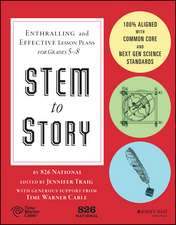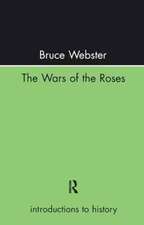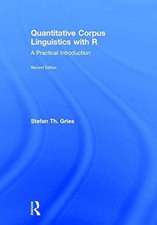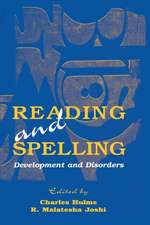How We Think: A Theory of Goal-Oriented Decision Making and its Educational Applications: Studies in Mathematical Thinking and Learning Series
Autor Alan H. Schoenfelden Limba Engleză Paperback – 5 oct 2010
| Toate formatele și edițiile | Preț | Express |
|---|---|---|
| Paperback (1) | 490.57 lei 6-8 săpt. | |
| Taylor & Francis – 5 oct 2010 | 490.57 lei 6-8 săpt. | |
| Hardback (1) | 1007.12 lei 6-8 săpt. | |
| Taylor & Francis – 5 oct 2010 | 1007.12 lei 6-8 săpt. |
Din seria Studies in Mathematical Thinking and Learning Series
-
 Preț: 273.49 lei
Preț: 273.49 lei -
 Preț: 310.22 lei
Preț: 310.22 lei -
 Preț: 322.47 lei
Preț: 322.47 lei -
 Preț: 272.41 lei
Preț: 272.41 lei - 8%
 Preț: 380.38 lei
Preț: 380.38 lei -
 Preț: 272.82 lei
Preț: 272.82 lei -
 Preț: 332.84 lei
Preț: 332.84 lei -
 Preț: 191.51 lei
Preț: 191.51 lei -
 Preț: 281.09 lei
Preț: 281.09 lei - 15%
 Preț: 567.41 lei
Preț: 567.41 lei -
 Preț: 476.64 lei
Preț: 476.64 lei - 15%
 Preț: 466.40 lei
Preț: 466.40 lei - 18%
 Preț: 780.87 lei
Preț: 780.87 lei -
 Preț: 488.18 lei
Preț: 488.18 lei -
 Preț: 344.20 lei
Preț: 344.20 lei -
 Preț: 204.00 lei
Preț: 204.00 lei - 15%
 Preț: 566.43 lei
Preț: 566.43 lei -
 Preț: 399.24 lei
Preț: 399.24 lei - 18%
 Preț: 1278.88 lei
Preț: 1278.88 lei -
 Preț: 372.46 lei
Preț: 372.46 lei - 15%
 Preț: 447.16 lei
Preț: 447.16 lei - 15%
 Preț: 440.96 lei
Preț: 440.96 lei -
 Preț: 419.17 lei
Preț: 419.17 lei -
 Preț: 487.16 lei
Preț: 487.16 lei -
 Preț: 422.59 lei
Preț: 422.59 lei - 15%
 Preț: 472.78 lei
Preț: 472.78 lei - 15%
 Preț: 586.90 lei
Preț: 586.90 lei - 19%
 Preț: 680.73 lei
Preț: 680.73 lei -
 Preț: 485.91 lei
Preț: 485.91 lei -
 Preț: 218.44 lei
Preț: 218.44 lei -
 Preț: 407.21 lei
Preț: 407.21 lei - 15%
 Preț: 474.93 lei
Preț: 474.93 lei -
 Preț: 355.64 lei
Preț: 355.64 lei -
 Preț: 441.54 lei
Preț: 441.54 lei - 18%
 Preț: 1061.57 lei
Preț: 1061.57 lei
Preț: 490.57 lei
Nou
Puncte Express: 736
Preț estimativ în valută:
93.88€ • 101.94$ • 78.86£
93.88€ • 101.94$ • 78.86£
Carte tipărită la comandă
Livrare economică 22 aprilie-06 mai
Preluare comenzi: 021 569.72.76
Specificații
ISBN-13: 9780415878654
ISBN-10: 0415878659
Pagini: 264
Ilustrații: 5 black & white tables, 40 black & white line drawings
Dimensiuni: 152 x 229 x 18 mm
Greutate: 0.49 kg
Ediția:1
Editura: Taylor & Francis
Colecția Routledge
Seria Studies in Mathematical Thinking and Learning Series
Locul publicării:Oxford, United Kingdom
ISBN-10: 0415878659
Pagini: 264
Ilustrații: 5 black & white tables, 40 black & white line drawings
Dimensiuni: 152 x 229 x 18 mm
Greutate: 0.49 kg
Ediția:1
Editura: Taylor & Francis
Colecția Routledge
Seria Studies in Mathematical Thinking and Learning Series
Locul publicării:Oxford, United Kingdom
Cuprins
Introduction and Acknowledgments
1. The Big Picture
2. Reflections, Caveats, Doubts, and Rationalizations
3. The Structure of the Representations Used in this Book
4. Lesson Analysis I: A beginning teacher carrying out a traditional lesson
5. Lesson Analysis II: An experienced teacher carrying out a non-traditional lesson
6. Lesson Analysis III: Third graders! A non-traditional lesson with an emergent agenda
7. Lesson Analysis IV: The analysis of a doctor-patient
Consultation – an act of joint problem solving
8. Next Steps
Indices, etc
1. The Big Picture
2. Reflections, Caveats, Doubts, and Rationalizations
3. The Structure of the Representations Used in this Book
4. Lesson Analysis I: A beginning teacher carrying out a traditional lesson
5. Lesson Analysis II: An experienced teacher carrying out a non-traditional lesson
6. Lesson Analysis III: Third graders! A non-traditional lesson with an emergent agenda
7. Lesson Analysis IV: The analysis of a doctor-patient
Consultation – an act of joint problem solving
8. Next Steps
Indices, etc
Notă biografică
Alan H. Schoenfeld is the Elizabeth and Edward Conner Professor of Education and Affiliated Professor of Mathematics at the University of California, Berkeley.
Recenzii
"[It] constitutes an important scholarly contribution to our understanding of a key determinant to the quality of what takes place in the complex activity known as teaching and learning. In How We Think, Schoenfeld homes in on a facet of instructional practice that is central and yet invisible. The results are illuminating." --Teachers College Record
"How We Think is an important resource for mathematics education, as well as the decision making sciences…The book is highly recommended to anyone interested in self analyzing teaching practice, researching teacher practices, building a program of research, or simply interested in how we think. The moderate length of the book also facilitates it being accessible for semester long graduate seminars. Last but not least the appendices contain a wealth of real data with notes and URL’s for those interested in learning fine grained analysis of teaching data."—Journal for Research in Mathematics Education
"In-the-moment decision making is perhaps the most central activity of teaching; it is also one of the most elusive teaching activities to study. How We Think presents an approach to modeling in-the-moment decision making as a function of the teacher’s goals, orientations, and resources, and invites the educational community to explore the use of this model as a tool for understanding and improving teaching. The product of over a decade of scholarship, it is a wonderful example of theory building through careful, detailed empirical analysis."--Hilda Borko, Professor of Education, Stanford University
"Alan H. Schoenfeld presents a general scheme for analyzing a person's activity in a dynamic environment by which he frames explanatory accounts of classroom mathematics teaching. There is much here that contributes to understanding important aspects of teaching and that shows how standard assumptions of psychological choice theory can be modified and extended to provide explanations of teaching."--James Greeno, Visiting Professor, School of Education, University of Pittsburgh
"Reading this book is a must for members of the mathematics education community, not only because of the standing of its author and his writing style, but also because of the issue it addresses which is at the core of today’s agenda: mathematics teaching and the need for theoretical frameworks to study it."—Abraham Arcavi, ZDM: The International Journal on Mathematics Education
"How We Think is an important resource for mathematics education, as well as the decision making sciences…The book is highly recommended to anyone interested in self analyzing teaching practice, researching teacher practices, building a program of research, or simply interested in how we think. The moderate length of the book also facilitates it being accessible for semester long graduate seminars. Last but not least the appendices contain a wealth of real data with notes and URL’s for those interested in learning fine grained analysis of teaching data."—Journal for Research in Mathematics Education
"In-the-moment decision making is perhaps the most central activity of teaching; it is also one of the most elusive teaching activities to study. How We Think presents an approach to modeling in-the-moment decision making as a function of the teacher’s goals, orientations, and resources, and invites the educational community to explore the use of this model as a tool for understanding and improving teaching. The product of over a decade of scholarship, it is a wonderful example of theory building through careful, detailed empirical analysis."--Hilda Borko, Professor of Education, Stanford University
"Alan H. Schoenfeld presents a general scheme for analyzing a person's activity in a dynamic environment by which he frames explanatory accounts of classroom mathematics teaching. There is much here that contributes to understanding important aspects of teaching and that shows how standard assumptions of psychological choice theory can be modified and extended to provide explanations of teaching."--James Greeno, Visiting Professor, School of Education, University of Pittsburgh
"Reading this book is a must for members of the mathematics education community, not only because of the standing of its author and his writing style, but also because of the issue it addresses which is at the core of today’s agenda: mathematics teaching and the need for theoretical frameworks to study it."—Abraham Arcavi, ZDM: The International Journal on Mathematics Education
Descriere
In How We Think, esteemed scholar and mathematician Alan Schoenfeld proposes a groundbreaking theory and model about how we think and act in the classroom and beyond.



















